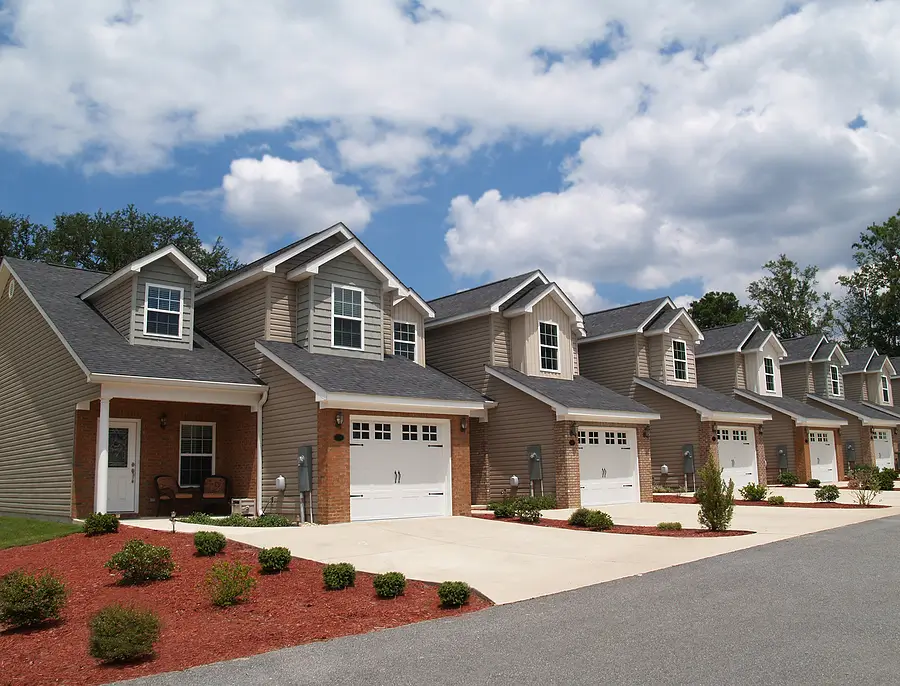As a Virginia residential landlord, it can be tempting to turn a storage shed, basement, or even a garage into a rental unit to bring in some extra income. In a market like Richmond, where rental property demand is high, finding creative ways to maximize income seems like smart business. But before you rent out a space not approved as a legal housing unit, it’s critical to understand what’s at stake.
In this article, we’ll break down what qualifies as an illegal unit, why it matters under Virginia law, and what it could cost you, both financially and legally. Whether you're managing a single-family residence, an apartment building, or any other residence, this guide is your starting point to stay compliant, protect your investment, and avoid severe penalties.
What Is an Illegal Rental Unit?
An illegal unit is any space used as a rental that hasn’t been approved by the local building or housing department. These units often lack the necessary permits or fail to meet zoning and safety standards. In Richmond, local ordinances require that all rental units be registered and inspected in compliance with property maintenance codes. In many jurisdictions, landlords must register their rental properties with a government agency to avoid penalties.
Examples of illegal units include:
- Converted garages or storage sheds
- Basements without proper egress windows
- Attics without insulation or heating
- Units not permitted for residential occupancy
If a government agency hasn't approved the unit as livable, it’s not just a gray area—it’s a legal liability. If a local municipality determines that a unit is illegal, the rental agreement may become unenforceable.
The Legal Risks for Landlords
If you're a property owner leasing an illegal unit, you could face several consequences under state laws and local ordinances:
- Fines and Penalties: Municipalities can impose hefty fines for non-compliance. In many cities, these can reach thousands of dollars per day the violation continues.
- Tenant Claims: A tenant who learns their unit is illegal may sue for fraud, misrepresentation, or breach of the warranty of habitability. They may also report you to the Virginia Fair Housing Office or other government bodies.
- Relocation Benefits: In Richmond and other parts of Virginia, tenants may be entitled to relocation benefits if an eviction stems from zoning violations.
- Eviction Complications: A landlord may not be able to legally evict a tenant living in an illegal unit using the normal legal process. Courts could dismiss your unlawful detainer action, forcing you to start over.
The cost isn’t just financial—it can also severely damage your reputation as a residential landlord.
Tenants Have Rights—Even in Illegal Units
You might think that because the unit isn’t legal, the Tenant Act doesn’t apply. Think again.
The Virginia Residential Landlord and Tenant Act (VRLTA) applies to most residential landlords and tenants in the Commonwealth. Even if your unit is unpermitted, the Virginia Residential Landlord Tenant Act (VRLTA) applies to apartment complexes, single-family houses, hotels, motels, or boarding houses under certain conditions.
- The right to pay rent only for habitable premises
- The right to receive proper notice before entry
- The right to collect damages or a security deposit refund if the unit is unsafe
- Protections against discrimination based on national origin, race, gender, or family status
- The legal right to live in a home that is safe and healthy
In some cases, tenants may also be entitled to attorney fees, making a small dispute escalate quickly into a serious civil action.
Common Situations That Raise Red Flags
Here are some examples where landlords unknowingly violate the law:
- Failing to file for the correct permits before renting a converted basement.
- Skipping inspection requirements when leasing a back unit.
- Providing no written lease or failing to document the rental agreement.
- Refusing to make repairs to systems like hot water, electricity, or gas, rendering the unit unfit for habitation.
- Neglecting to address problems that make a home unsafe, as the law divides these duties between the landlord and the tenant.
In any of these cases, the tenant may legally terminate the rental agreement and request compensation for damages, and you may be liable for the remaining balance of their lease term.
Legal Paths and How to Avoid Trouble
We advise landlords to take proactive steps to avoid costly court battles and legal headaches:
- Conduct an Inspection: Work with a licensed contractor or the housing inspection department to determine whether the unit complies with local and state regulations.
- Consult a Tenant Lawyer: Even if your intent was made in good faith, a tenant lawyer can help assess your legal exposure and advise whether to evict, seek compliance, or make the unit legal.
- Use a Written Lease Agreement: Always execute a written lease that clearly outlines tenant responsibilities, rent payment terms, and your duties as a landlord.
- Stay Informed on Local Ordinances: Each city or county may have different rules. For example, what’s allowed in Henrico County might not fly in the City of Richmond.
- Understand the Relocation Rules: If you're required to vacate the tenant, they may be entitled to relocation benefits. Failing to pay these can stall any eviction notice or legal action.
Do the Right Thing—Protect Your Investment
We understand that as a Virginia residential landlord, you want to make the most of your rental property. However, cutting corners on compliance could cost you far more than you stand to gain. The legal, financial, and ethical risks are simply too high when it comes to renting an illegal unit.
By following Virginia law and the VRLTA, working with licensed professionals, and keeping your rental units fully permitted and safe, you’ll avoid legal landmines while building long-term value for your property.
Ready to Protect Your Rental Property?
We help property owners like you avoid costly mistakes by providing expert property management, lease agreement drafting, tenant screening, and full compliance support. Whether you're leasing a single-family residence or an apartment building, we’re here to ensure your rental business stays profitable—and legal.
Explore how we can help:
Your success as a landlord depends on getting the details right. Let’s get it done—together.






